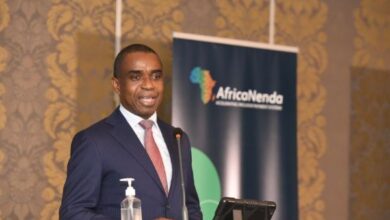Ghana: Mobile money driving remittances
By Darryl PIETERSEN
THE impact of COVID-19 continues to be felt across the globe with many countries and their citizens struggling to bounce back from the economic devastation caused by the pandemic.
Despite these strained circumstances, world mobile money services have grown rapidly and are serving as a lifeline for those who rely on remittances for their everyday needs.
Groupe Speciale Mobile Association (GSMA) is an association representing the interests of mobile operators and the broader mobile industry worldwide.
According to GSMA’s annual ‘State of the Industry Report on Mobile Money 2023’, global mobile money-enabled international remittances grew by 28% year-on-year. And transaction values grew by 22% between 2021 and 2022, from USD $1 trillion to around USD $1.26 trillion.
Likewise, global daily transaction values have exceeded predictions. Last year, GSMA predicted the value could reach USD $3 billion per day by the end of 2022, but this figure was surpassed, with USD $3.45 billion transacted daily via mobile money last year.
The GSMA is a global organisation unifying the mobile ecosystem to discover, develop
and deliver innovation that helps business and society thrive.
During the pandemic, more diaspora communities sent funds via mobile money to friends and family than ever before. As such, international remittances grew significantly in both 2020 and 2021, as many senders favoured mobile money for its efficiency, speed, safety and cost-effectiveness. This trend continued in 2022, albeit at a slower rate. 1
Mobile money adoption and usage have grown throughout West Africa, with the region reporting the highest number of new accounts among all subregions across the globe, with Ghana, Côte d’Ivoire and Senegal being the mobile money leaders. Active accounts grew by 25% between 2021 and 2022, while registered accounts grew by 21%.1
The industry report is in line with a World Bank Migration and Development Brief on Ghana, which stated it was the second largest recipient of remittances in the Sub-Saharan Africa region, recording USD $4.7 billion inflows in 2022. This was 4.4% more than the previous year and constituted 6.1% of its GDP. 2
However, while the data shows that international remittances continue to benefit from pandemic-induced growth, many Ghanaian migrant workers are feeling the pinch, like other remittance senders, in supporting their families back home.
Darryl Pietersen, Director of Anglophone Africa, WorldRemit says: “Research continues to emphasise the crucial role of remittances, including via global mobile money services, in helping households in Ghana and other countries in Sub-Saharan Africa survive the tough financial conditions resulting from the Covid-19 pandemic. And despite economic migrants having to deal with their own financial stresses, they are still doing their best to meet the needs of their families back home who are also experiencing high cost of living.”
According to WorldRemit’s recent Cost of Living Index, remittance senders in the US, Australia and the UK agree that the cost of living for the people to whom they send money has risen since the start of the year.
The study highlights the impact of inflation on people around the world, with almost half (45%) noting they now only send money to immediate family, rather than friends and distant relatives.
According to the index, one in nine people worldwide rely on money sent from friends and relatives who have migrated abroad for work. With several factors contributing to increased financial pressure, the data shows that 72% of respondents in the US, 41% in Australia, and 44% in the UK have taken up a job in addition to their main source of income.
A total of 27% of respondents on average across the three markets indicated they did so to support the increase in their own cost of living since the Covid-19 pandemic and almost one-fifth (19%) did so to continue supporting their family and friends abroad.
These financial pressures are unlikely to ease anytime soon, with the International Monetary Fund warning that although global inflation is expected to fall from 8.8% in 2022 to 6.6% in 2023 and 4.3% in 2024, it is still above pre-pandemic (2017– 2019) levels of about 3.5%.4
All in all, despite the rising cost of living, mobile money has emerged as a powerful catalyst for driving remittances, empowering individuals and transforming lives across borders.
. The writer is Director of Anglophone Africa, WorldRemit




